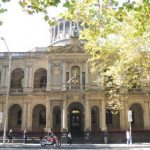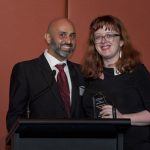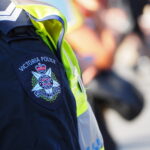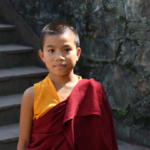The “Struggle Street” Controversy

SBS’s controversial three-part documentary series Struggle Street caused a furore even before it aired.
The series, which examined social inequality in the Western Sydney suburb of Mount Druitt, created a stir following the release of unflattering advertisements for its first episode.
Many local residents were concerned that it painted the suburb in a negative light. Council workers took to the streets to voice their concerns, with 10 Blacktown City garbage trucks blocking the entrance to the SBS studios on the morning of the series premiere.
Also in attendance was Blacktown City Mayor Stephen Bali, who declared that ‘this program must stop because it’s not a documentary, it’s publicly funded poverty porn.’
SBS withdrew the ad following the backlash. But the controversy grew once again after the first episode aired, this time from members of the wider public who criticised the show’s stars for their actions – including those of 22-year-old Billie-Jo Wilkie, who was shown smoking cannabis whilst pregnant.
The Numbers Are In
The controversy has merely fuelled interest in the show, contributing to its ratings success.
The highly-anticipated first episode drew 935,000 viewers in the metro region, making it SBS’s ‘most successful program ever’, besides sports events.
This does not include the number of viewers who have watched the episode online – and the total number of viewers is estimated to be in the vicinity of 1.5 million.
The final two episodes also drew strong audiences of around 828,000 in capital cities.
It’s unclear whether the show’s participants received any form of financial compensation for allowing the media into their homes and lives.
But while SBS is relishing in the show’s success, the residents of Mount Druitt have been left wondering whether it was all worth it.
More Harm Than Good?
The show has left many residents angry at the damage that the negative publicity has had on the region’s reputation.
Blacktown Mayor Stephen Bali labelled the show an ‘attack’ on the working class, fearing that it could reinforce negative stereotypes about the community.
Several of the show’s stars have also complained that the broadcaster took their statements and actions out of context in a bid to generate emotive appeal and general controversy.
Single mum Erin Rideout, who appeared in the show, says that she had stated in discussions with the film crew that there is ‘good and bad in every suburb’ before stating that she had witnessed a few fights in Mount Druitt. But according to her, the show’s producers left out the first part and only used the line about the fighting.
Since the show aired, Ms Rideout has reportedly experienced verbal abuse from members of th ecommunity while walking in the streets with her five-year-old son.
Another contributor to the show, 18-year-old Chloe Kennedy, opened up about being bullied at school due to her epilepsy and autism. But since the show premiered, viewers have taken to Twitter taunting and calling her profane names.
Despite this, the publicity appears to have paid off for some of the show’s other contributors.
Ivanka Pelikan, a program development worker at Graceades Cottage, says that the cottage has been ‘inundated with calls from people wanting to make donations.’
This is a particularly welcome prospect given the fact that the Federal Government last year announced cuts of $240 million from various welfare groups.
The Reality of Reality TV
For those of us sitting comfortably at home, Struggle Street makes for fascinating viewing.
Whether you feel anger and resentment towards the show’s participants, incredulity at the lack of community support in the area, or simply a sense of sadness and helplessness, it is difficult to watch the series without feeling some sort of emotion.
Yet for those who are more familiar with the area, and the complex issues surrounding entrenched socio-economic disadvantage, the show only exposes the tip of a very large iceberg.
On the show, the Kennedy family provides a short background to their situation – dad Ashley had a good job as a truck driver before he suffered four heart attacks, a stroke and a triple bypass which forced him to retire. His wife Peta was forced to quit her corporate catering job to care for him around the clock. The family and their 10 children now survive off a disability support pension.
However, besides this brief background to each participant’s situation, the show does little to explore the complex reasons behind why people end up ‘doing it tough.’ Indeed, it would be a difficult feat to thoroughly examine these problems in the space of three one-hour episodes.
Nor does it give any overview of the positive steps that could be taken by society to break the cycle of disadvantage such as better access to education, homeless shelters and increased access to mental health services.
One initiative which we have discussed in previous blogs is ‘Justice Reinvestment’ which aims to curb entrenched socioeconomic advantage by directing funding into community programs and education measures.
The show would have been a prime opportunity to enhance public awareness of these issues and garner community support for such valuable programs.
Besides this, locals are angry that the show’s producers did not show the ‘positive’ sides of Mount Druitt – including the large proportion of residents who are engaged in employment, education or trades.
Several students attending Western Sydney TAFE have expressed disappointment that their positive experiences were not documented, and raised concerns that the show’s producers cherry-picked ‘the worst elements of their neighbourhood.’
Ethical Issues
One must also question the ethics behind signing up disadvantaged persons for sheer entertainment value.
‘there are specific guidelines for doing research with Indigenous people [such as William who appears on the show]…surely the audience is prompted to question the appropriateness of actively marketing a show using an Aboriginal drug user with no other images of Indigeneity to balance the stereotype.
Concerns were also raised about the inclusion of participants with mental illness and brain damage, as well as the experiences of a minor who contends that she was raped and then ‘exposes her more intimate feelings on national television.’
In response to the concerns, SBS has issued a statement saying that:
‘Informed consent was obtained for all participants prior to filming,’ and ‘careful consideration was taken in relation to potentially vulnerable participants and children, and the impact filming may have on them.’
Whether such a statement is of any comfort to residents and disgruntled participants is another question altogether.






